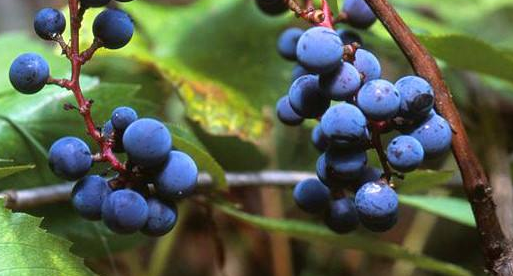After treatment with 800mg/LPVPP, the total phenol, tannin, polyphenol oxidase activity and browning of most wild wines decreased to varying degrees. PVPP treatment of wild wines with high total phenol and tannin content is an effective process.
Impregnation
The control of impregnation is one of the key technologies of mountain winemaking. The short-term 3-4 days of impregnation can reduce the amount of total phenol and tannin leaching, and also meet the color requirements of red wine, while softening the wine. The method of precipitating or prolonging the separation of the skin residue is such that the phenolic substances in the wine reach the range required by different wine types.
Measures for controlling impregnation: Before alcohol fermentation, some of the skin residue is removed by pressing; sucrose is not added during the main fermentation, and the time of main fermentation immersion is shortened; and separation is performed before the end of alcohol fermentation. Strengthen the impregnation method: add sugar in batches during alcohol fermentation; invert the tank 3-4 times a day to enhance the spit spray; control the higher fermentation temperature (28-30 °C).

Application of pectinase
The use of pectinase can improve the filling coefficient, improve the utilization rate of the fermenter, accelerate the extraction of the pigment of the peel, shorten the immersion time, reduce the content of inferior tannin in the core, increase the juice yield, and accelerate the separation speed.
Raw material improvement and fermentation technology
Wild grapes generally have the characteristics of deep color, high acidity and low sugar. At present, it can produce non-drinking sweet red wine, blending and toning acid blending wine, and adopting special techniques to produce whole juice wild grape liqueur.
Research on raw material improvement and blending techniques is important to broaden the use of wild grapes.
Over-cooked wilt method: In the Zuojia area of ​​Jilin, the mountain grapes are over-cooked and reach a certain degree of wilting. When harvesting, the fruit stalks have all been shrunk, the acid content of the fruit is reduced, and the sugar content is decreased. Increased by the concentration effect. The mountain wine produced by this method has a rich body and a unique flavor, and is quite styled in ice wine.
High-alcoholic low-temperature acid reduction method: The average acid reduction of mountain wine during alcohol fermentation was 6.76g/L. At the same time, the solubility of potassium hydrogen tartrate is greatly reduced due to an increase in alcohol content and a decrease in temperature. Fermentation is carried out with high-alcohol-resistant yeast to a wine content of about 15%. After fermentation and low temperature (-4---6 °C) storage in the winter, the total acid reduction is 12.7 g/L. The key to this technology is the choice of yeast species and effective insulation when the temperature in the northeast is too low.
Carbon dioxide impregnation: 4-6 days of carbon dioxide impregnation has a certain effect on reducing the content of malic acid, forming malic acid ethanol fermentation, and accelerating the extraction of pigment during alcohol fermentation. It is necessary to automatically remove the cans during the production process, and to prevent mildew.
Organic pea protein powder is a high-quality protein extracted from peas using a low temperature and low-pressure technology. In the production process, no chemical solvents are used. As a vegan protein, it is easy to digest and can be used as an excellent substitute for animal protein.
Pea protein contains eighteen kinds of amino acids necessary for the human body and is a full-price protein. It contains 18 essential amino acids such as leucine, lysine, valine, and isoleucine. Pea protein contains no cholesterol and is an excellent source of protein for vegetarian and vegan foods.
Pea protein is one of the best vegetarian protein powders and has been widely used in the field of artificial meat. We provide organic pea protein to synthetic meat producers in the United States and the European Union, and the finished product can be found in supermarkets.
Our organic pea protein has passed the organic certification of the European Union and the United States Department of Agriculture. It is 100% vegan/vegan and non-GMO protein powder.
Pea Protein,Organic Pea Protein,Organic Pea Protein Powder,Pea Protein Organic
Organicway (xi'an) Food Ingredients Inc. , https://www.organic-powders.com